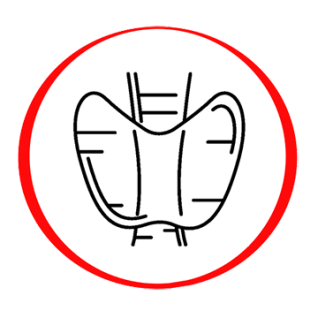Blood take service 5.00€

Anti – TSHR | Antibodies against TSH receptors
24.00€
32.00€
The validity period of online orders: 3 months from the purchase date.
The correct name for this indicator is TSH receptor antibodies. However, it is often mistakenly called abbreviated TSH receptor. Antibodies against thyrostimulating hormone receptor are important in the diagnosis of Grave's disease. The rate depends a lot on the methodology. Hyperthyroidism can occur for many reasons, but the most common is Grave's disease, or diffuse toxic goiter. In this disease, thyroid-stimulating immunoglobulins bind to the TSH receptor on thyroid cells. As a result of this union, the body starts a compensatory overproduction of thyroid hormones. Grave's disease affects about 1% of the population and accounts for about 85% of all causes of hyperthyroidism. Women are affected about 10 times more often than men. The disease is usually diagnosed when signs of hyperthyroidism are detected. The thyroid gland is usually enlarged, although it may be absent in about a third of patients. Many patients experience inversion and tachycardia due to stimulation of the adrenal glands. Whenever Grave's disease is suspected, it is convenient to use the TSHr indicator. TSHr should be determined to assess disease activity. It reflects the severity of the disease (usually coincides with ophthalmological symptoms - diplopia, ptosis, translation). TSHr can be used to assess response to treatment. However, in addition to TSHr, it is necessary to additionally rely on the clinic, changes in hyperthyroidism, and the background of thyrostatic or steroid treatment. These factors can distort TSHr values. TSHr antibodies are found in 90% of Grave's disease patients. In hyperthyroidism or euthyroid form of Grave's disease, this indicator is an additional diagnostic test.

Reference: 18981
24.00€
32.00€






